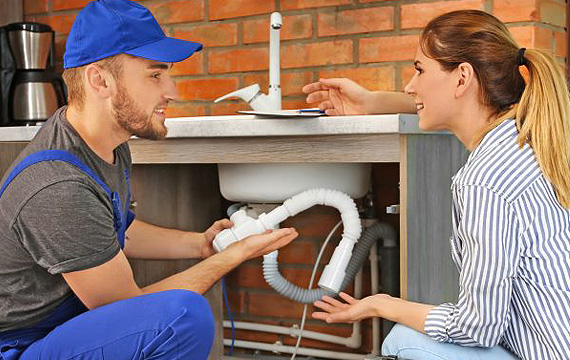Showering, washing up, cleaning, and so much more all require the usage of a water heater in our daily lives. Because we use them so frequently, we must invest in water heater repair in our homes on a regular basis. Water heaters wear out or break down all the time, so keeping track of them is crucial.
As we all know, the majority of individuals have one thing in common: they don’t want their water heater to break down. It is normally recommended as a professional on how to maintain a water heater and avoid system failures:
As long as periodic maintenance is undertaken from the time of installation, water heater efficiency can be preserved and usage life can be extended.
Here are 4 major benefits of Regular Maintenance of Water Heaters
- It can help you save money:Flushing your water heater at least once a year or every six months (if possible) will almost certainly save you money on your coming bill and provide you with hot water even faster. Because draining your water heater helps to ensure that it is running correctly and clean water heaters use less energy, flushing your water heater contributes to minimizing your home’s energy use.
- It aids in Life Extension:You can increase the life of your water heater if you tune it up once a year or twice a year.
- There will be no more surprises:Maintaining your water heater will help you prevent unpleasant shocks like chilly showers or a flood in your home caused by a faulty water heater.
- Reduced Chances of an Early Replacement:When you schedule maintenance for your water heater, it improves the overall performance of the system. This means fewer ignored repairs, which could lead to a premature replacement of your system. You want to prevent early replacements since they are costly.
- You can notice enhanced efficiency:Calcium build-up is particularly prevalent in water heaters, and it can significantly reduce the efficiency of your system. When loose minerals build up on the bottom of your water heater, it becomes more difficult for it to produce hot water.
Such kind of minerals can cause an electric water heater’s lower heating element to fail. Both flushing and servicing your water heater on a regular basis helps increase its efficiency.
- Repairs are less frequent:Regular repairs are less likely with a well-maintained system. This is because, during the maintenance check, all of the minor technical issues that might typically result in a repair issue are resolved.
What Could Possibly Go Wrong?
A conventional water heater takes a material with the world’s highest heat capacity, in which it not only tries to heat water, but also stores it for later use. Heat can be pumped into the water using either gas or electricity. To keep the hot water hot, the heater requires insulation.
A conventional tank water heater can go wrong in a variety of ways. This is why, you must consult professionals and technicians with well-equipped trucks to provide prompt, high-quality service.
Let’s discuss the basic difference between conventional and tankless water heaters
Conventional water heaters use a tank to store hot water, while tankless water heaters rely on an internal heating element or fuel to keep the water heated.
Tankless water heaters typically have a smaller upfront cost but may require more frequent maintenance. Overall, tankless water heaters are more versatile and efficient than conventional water heaters, but both have their advantages and disadvantages.
Benefits of tankless water heaters:
- Smaller upfront cost:Tankless water heaters generally have a smaller upfront cost than conventional water heaters, though this may vary depending on the model.
- More efficient:Tankless water heaters are more efficient than conventional water heaters, meaning they use less energy to keep your hot water warm. It can definitely save you money in the long run.
- More versatile:Tankless water heaters are more versatile than conventional water heaters because they don’t require a tank. This means they can be placed anywhere in your home, and are not restricted by the size or shape of a traditional water heater.
Benefits of Conventional water heaters:
- More affordable:Conventional water heaters are more affordable than tankless water heaters, though this may vary depending on the model.
- More versatile:Conventional water heaters can be placed anywhere in your home, and they’re not restricted by the size or shape of a traditional water heater.
- Less fragile:conventional water heaters are less delicate than tankless water heaters and can withstand more abuse.
The Bottom Line
We assure you of top-notch services. Also, our experts will not waste your time with unnecessary calls to the office or several travels to find the proper part because of their technical skill and vast product knowledge. For professional assistance, you can seek our consultation.



